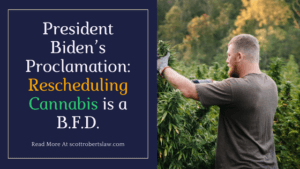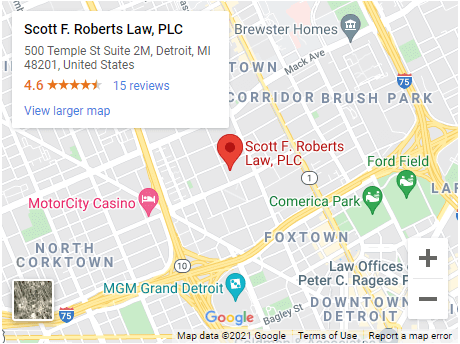By: Louis Magidson and Scott Roberts
Since the Marihuana Tax Act of 1937, which sought to stymie the entire hemp industry through excessive taxation in fear that industrial hemp would replace paper, industrial hemp has spent the past few decades as a restricted agricultural product. These tax restrictions were later superseded when the entire hemp plant was designated as a controlled substance under the Controlled Substance Act of 1970 (CSA). The CSA lumped industrial hemp together with consumable cannabis as a Schedule I drug with no medical use and a high potential for abuse, essentially killing the United State’s hemp industry for decades to come.
Prior to these regulations, industrial hemp enjoyed a wide commercial use in many different products as a more sustainable paper substitute. Now that Michigan has authorized its own hemp program under the farm bill, and hemp is legal to grow and process once again, there are a myriad of potential applications and uses for Michigan hemp ranging from auto industry to plastic and paper substitutes.
Industrial hemp is distinguished from recreational or medical grade cannabis when it has a delta-9 tetrahydrocannabinol (THC) concentration of 0.3% or less. This concentration level was determined to not have a reaction within the human body. However, the most recent and final USDA rule on industrial hemp serves as a positive sign for Michigan industrial hemp attorneys and the entire industry as a whole, as it allows a grace range of up to 1% THC for a cultivator to avoid negligent violation.
The renewed treatment of industrial hemp as an agricultural product for commercial use has intrigued many industry stakeholders due to its viability as a food product. The general trend of loosening restrictions bodes equally well for industrial hemp cultivators seeking to compete with paper products as well as the industrial hemp cultivators seeking to produce the next “superfood”. Nevertheless, the Michigan Department of Agriculture and Rural Development (MDARD) wants to correct the misconceptions about the use of hemp in food and dairy products in the wake of the cannabidiol (CBD) product craze sweeping the US without approval of the Food and Drug Administration.
Use of industrial hemp in food and dairy products falls under the regulations of the FDA, which are enforced in Michigan by the Food and Dairy Division (FDD) within MDARD. Recently the FDA chose to advance three hemp seed derived products to generally recognized as safe (GRAS) status, which allows the use of such a product in food items without extra premarket review be the FDA. Michigan hemp attorneys should recognize these products: hulled hemp seed, hemp seed protein powder, and hemp seed oil, as they are generally free of both THC and CBD and are therefore designated as GRAS and approved for use in food products. This designation means that these industrial hemp products are considered a food product subject to all FDA, Food Safety Modernization Act, and Michigan Food Law requirements, but otherwise free from previous CSA restrictions.
Industrial hemp stakeholders seeking to enter the food and dairy product realm only need to acquire the correct specified licensing to produce hemp as any other agricultural product and use the approved seed derived substances as any other food additive with a GRAS designation from the FDA. The global industrial hemp seed market is set to rapidly increase in size following this designation for use in food and beverage products and an overall modern gravitation towards alternative ingredients and perceived “superfoods.” Through the sales of hemp seeds, hulled seeds, protein powder, and seed oil forms, the market grew to $710.7 million as of 2019, with projections of up to $1,634.6 million by 2027.
Industrial hemp represents a viable substitute for many consumer-based products with economic and environmental advantages over its plastic and paper competitors. With the additional designation as a GRAS product and approved use in food products, the Michigan hemp industry is poised to experience booming growth in the coming years, and not just from high CBD hemp.
Global Hemp Seed (Product) Market Stats
MDARD – FDD Industrial Hemp Release




